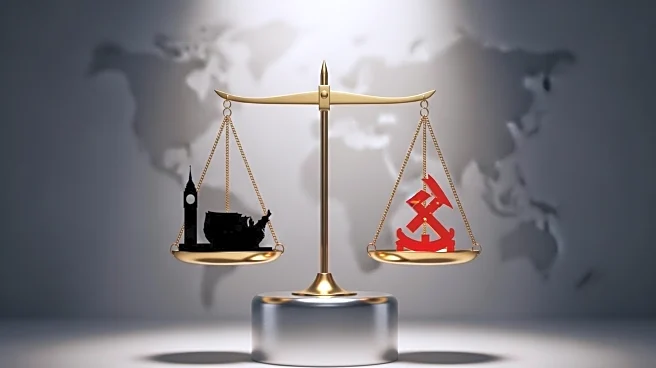What is the story about?
What's Happening?
President Trump has announced plans to impose a 100 percent tariff on Chinese goods, escalating the ongoing trade war between the United States and China. This announcement follows China's recent implementation of export controls on rare earth minerals, which are crucial for various industries. The trade tensions had previously eased in May when both nations agreed to reduce tariffs, but the situation has intensified again. Trump has indicated that these new tariffs could be enacted as early as November 1st, and he may skip a planned meeting with Chinese President Xi Jinping. The announcement has already impacted U.S. markets, causing the largest single-day drop since April.
Why It's Important?
The escalation of the trade war between the U.S. and China could have significant implications for global supply chains, particularly in industries reliant on rare earth minerals. The increased tariffs may lead to higher costs for American businesses and consumers, potentially affecting economic growth. Additionally, the uncertainty surrounding trade relations could impact investor confidence and market stability. The situation underscores the fragile nature of international trade agreements and the potential for geopolitical tensions to disrupt economic activities.
What's Next?
If the tariffs are implemented, businesses and industries that rely on Chinese imports may need to seek alternative sources or adjust their pricing strategies to accommodate increased costs. Political leaders and trade organizations may engage in negotiations to mitigate the impact of these tariffs and seek a resolution to the trade dispute. The potential cancellation of the meeting between Trump and Xi Jinping could further strain diplomatic relations, making future negotiations more challenging.
Beyond the Headlines
The trade war highlights broader issues of economic nationalism and the strategic importance of rare earth minerals in modern technology. It raises questions about the long-term sustainability of global trade practices and the balance between national interests and international cooperation. The situation may prompt discussions on diversifying supply chains and investing in domestic production capabilities to reduce dependency on foreign resources.
















